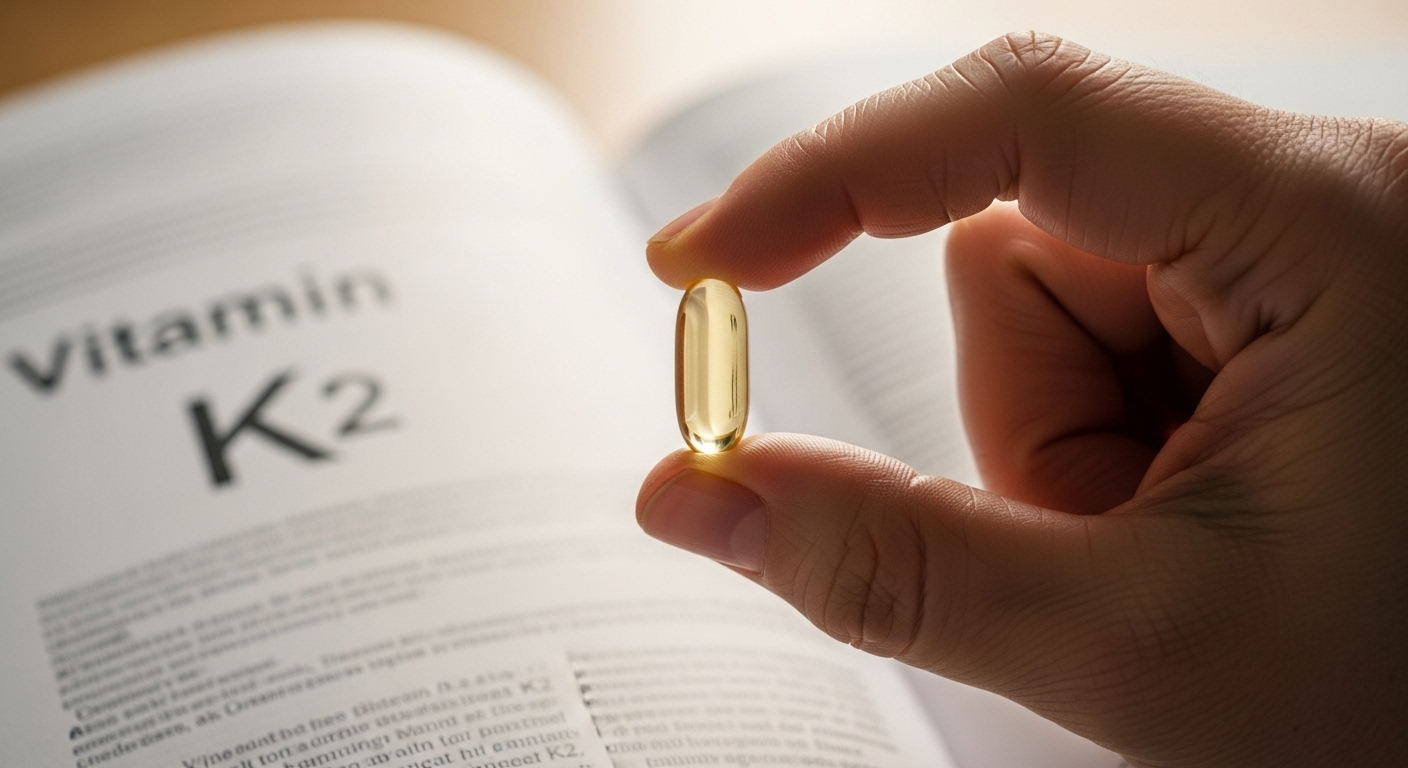Vitamin K2: The Unsung Hero of Bone and Heart Health
Vitamin K2, a lesser-known nutrient in the vitamin K family, has emerged as a critical player in maintaining bone strength and cardiovascular health. Often overshadowed by its more famous cousin, vitamin K1, K2 has been the subject of increasing scientific interest in recent years. This fat-soluble vitamin, found primarily in fermented foods and animal products, plays a unique role in calcium metabolism and has been linked to reduced risks of osteoporosis and heart disease. Despite its importance, many people remain unaware of vitamin K2's benefits, leading to potential deficiencies and missed opportunities for improved health outcomes.

Chemical Structure and Forms
Vitamin K2 exists in several forms, collectively known as menaquinones (MK). These forms are designated MK-4 through MK-13, based on the length of their side chains. The most studied forms are MK-4 and MK-7. MK-4 is found in animal products and can be synthesized in the body from other forms of vitamin K. MK-7, on the other hand, is primarily produced by bacterial fermentation and is found in fermented foods like natto, a traditional Japanese dish made from soybeans.
Biological Functions
At the molecular level, vitamin K2 acts as a cofactor for enzymes that activate specific proteins involved in calcium metabolism. The most notable of these proteins are osteocalcin and matrix Gla protein (MGP). Osteocalcin is crucial for bone formation, while MGP helps prevent calcium from depositing in soft tissues like blood vessels and kidneys. By activating these proteins, vitamin K2 ensures that calcium is directed to the bones where it’s needed, rather than accumulating in arteries and other soft tissues.
Dietary Sources and Supplementation
While vitamin K1 is abundant in green leafy vegetables, K2 sources are more limited. The richest dietary source of K2 is natto, which contains high levels of MK-7. Other sources include certain cheeses (particularly those made with bacteria), egg yolks, butter from grass-fed cows, and organ meats. Due to the limited dietary sources, especially in Western diets, supplementation has become increasingly common. Supplements typically contain MK-4 or MK-7, with MK-7 being more popular due to its longer half-life in the body.
Research on Bone Health
Numerous studies have investigated the role of vitamin K2 in bone health. A landmark study published in 2004 in the Journal of Bone and Mineral Research found that postmenopausal women who took vitamin K2 supplements for three years had significantly less bone loss compared to those who took a placebo. Another study, published in Osteoporosis International in 2013, showed that vitamin K2 supplementation improved bone strength in postmenopausal women with osteoporosis.
Cardiovascular Benefits
The potential cardiovascular benefits of vitamin K2 have garnered significant attention. A 2004 study published in the Journal of Nutrition found that high dietary intake of vitamin K2 was associated with a reduced risk of coronary heart disease. The Rotterdam Study, a large-scale prospective study, reported that individuals with the highest intake of vitamin K2 had a 57% lower risk of dying from heart disease compared to those with the lowest intake. These findings suggest that K2 may play a crucial role in preventing arterial calcification, a major risk factor for cardiovascular disease.
Synergy with Vitamin D
Emerging research has highlighted the synergistic relationship between vitamins K2 and D3. While vitamin D3 is crucial for calcium absorption, K2 ensures that the absorbed calcium is properly utilized in the body. Without adequate K2, the increased calcium absorption promoted by vitamin D could potentially lead to inappropriate calcification in soft tissues. This interplay underscores the importance of balanced supplementation and has led to the development of combination vitamin D3 and K2 supplements.
Safety and Interactions
Vitamin K2 is generally considered safe, with no known toxicity even at high doses. However, individuals taking blood-thinning medications like warfarin should consult their healthcare provider before supplementing with K2, as it may interfere with the medication’s action. Unlike vitamin K1, which strongly affects blood clotting, K2’s effect on coagulation is minimal, making it potentially safer for those on anticoagulants.
Future Research Directions
As interest in vitamin K2 grows, researchers are exploring its potential benefits beyond bone and heart health. Preliminary studies suggest possible roles in diabetes management, cancer prevention, and cognitive function. Additionally, ongoing research is investigating the optimal dosages for different health outcomes and the potential for K2 to be used therapeutically in various medical conditions.
Conclusion
Vitamin K2 represents a fascinating area of nutritional science that is still unfolding. Its unique properties and potential health benefits make it an important nutrient to consider in both dietary planning and supplement regimens. As research continues to elucidate its roles in the body, vitamin K2 may emerge as a key player in preventive health strategies, particularly for bone and cardiovascular health. While more studies are needed to fully understand its impact, the current evidence suggests that paying attention to vitamin K2 intake could be a wise move for overall health and longevity.




